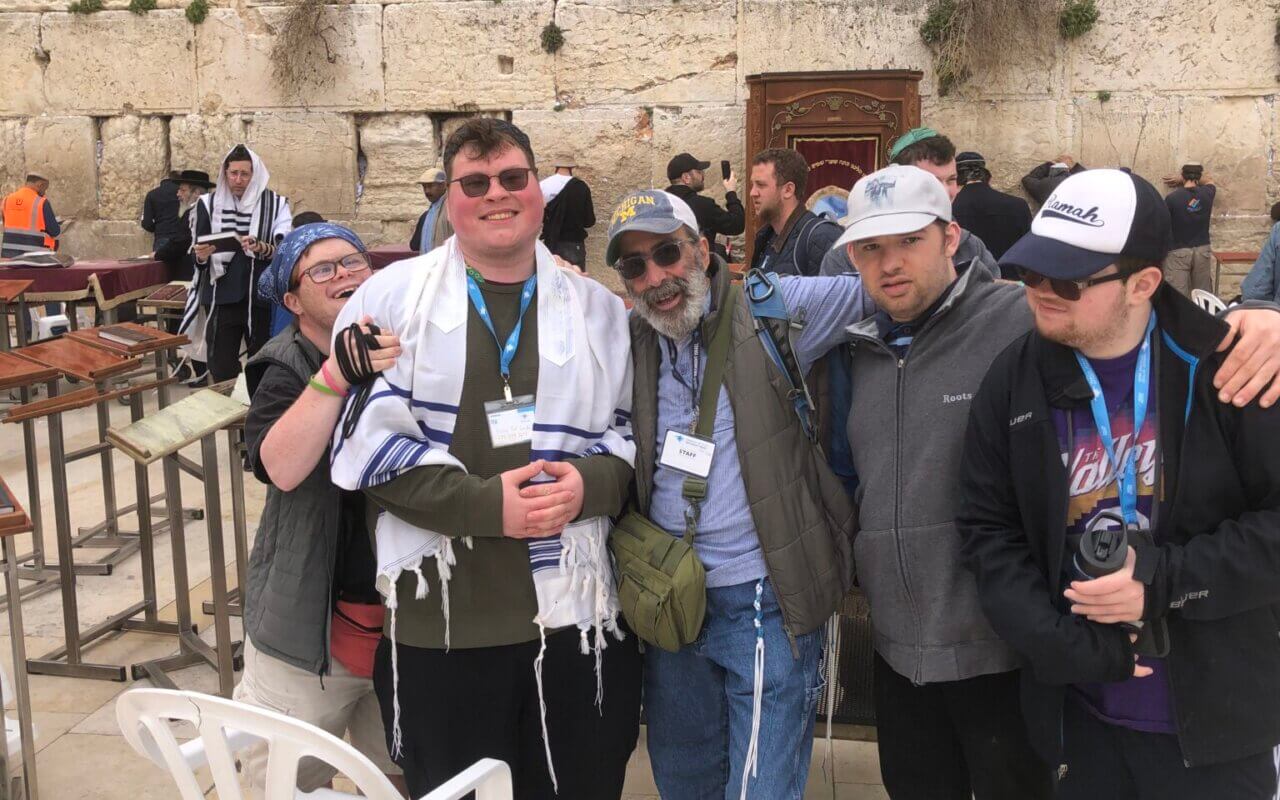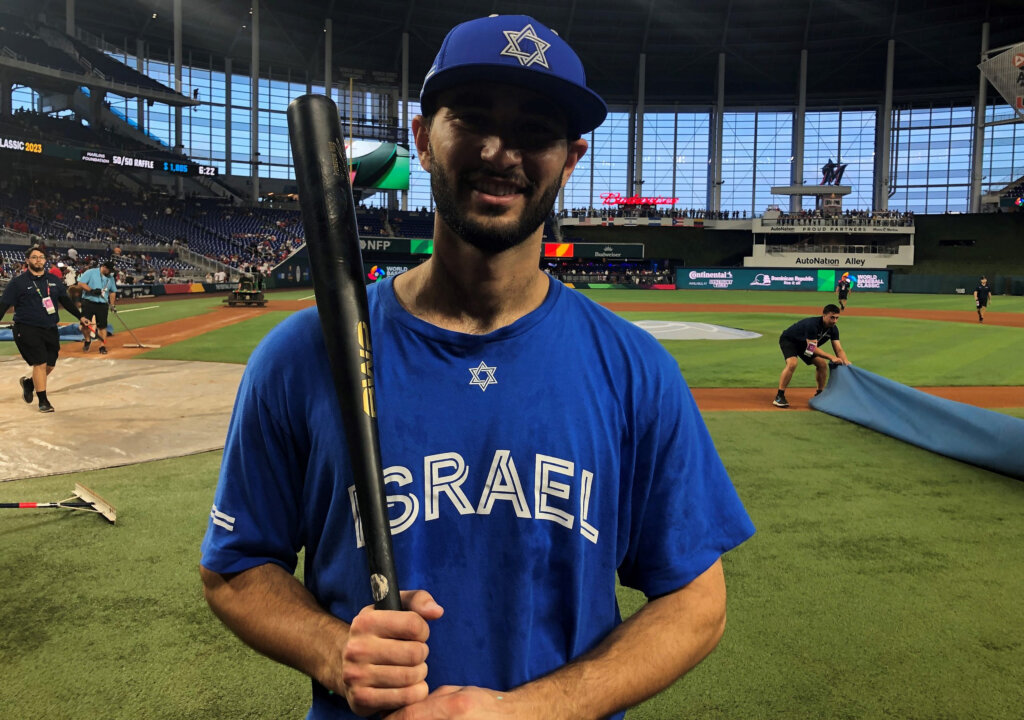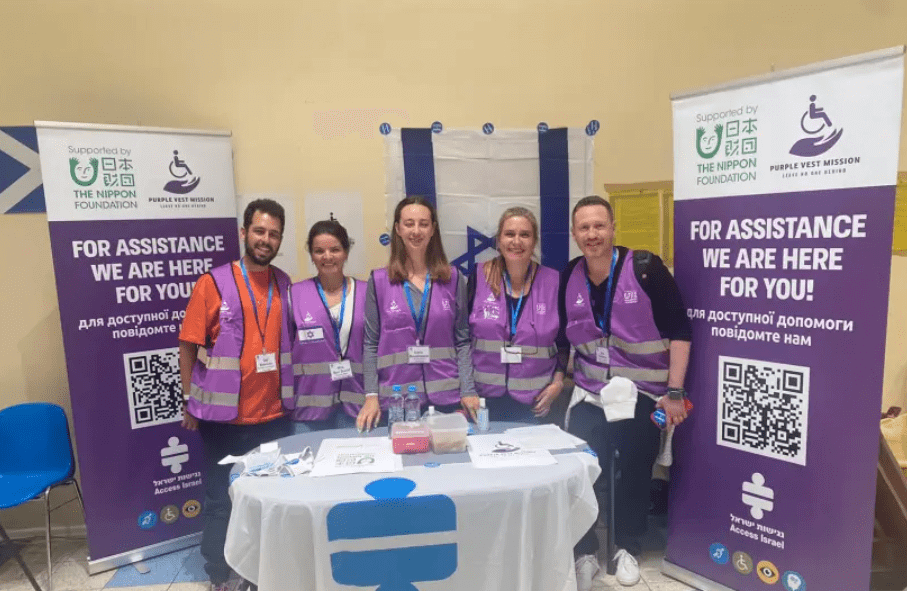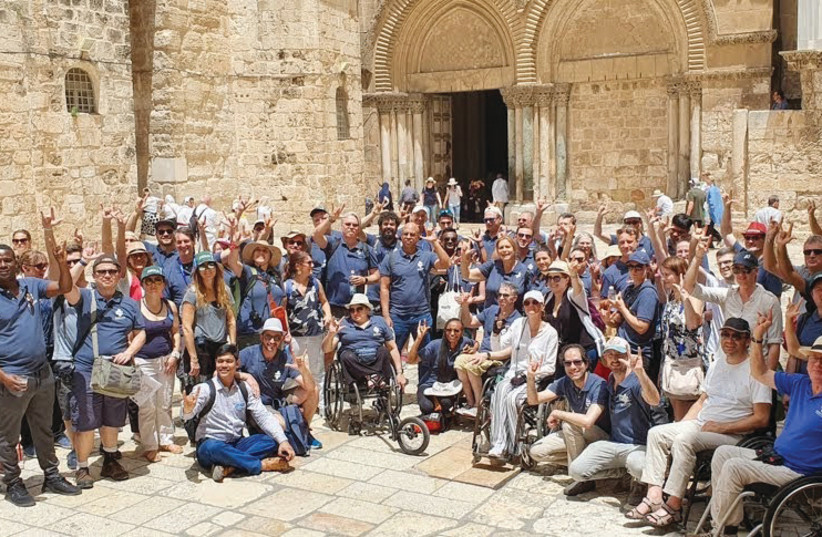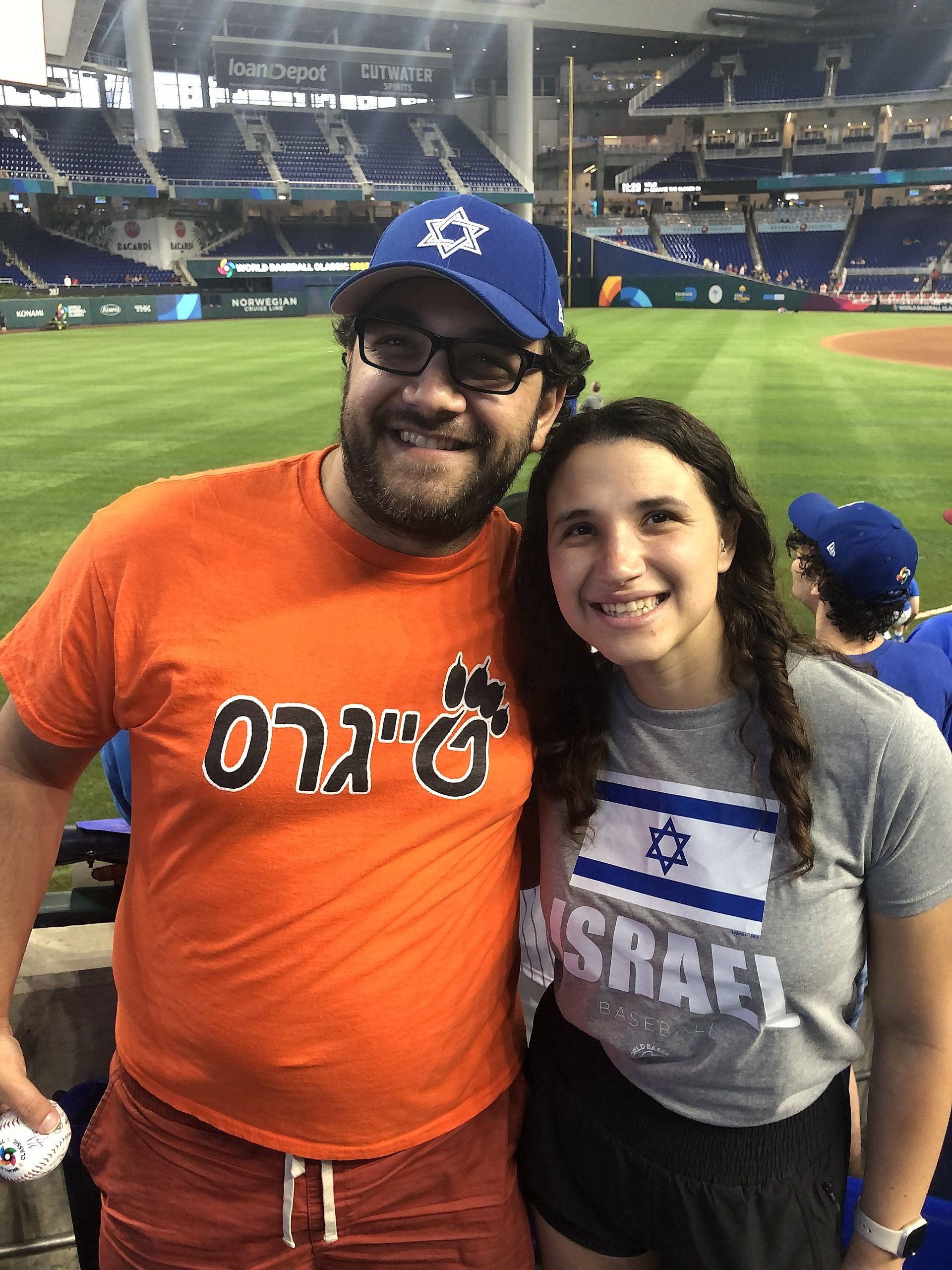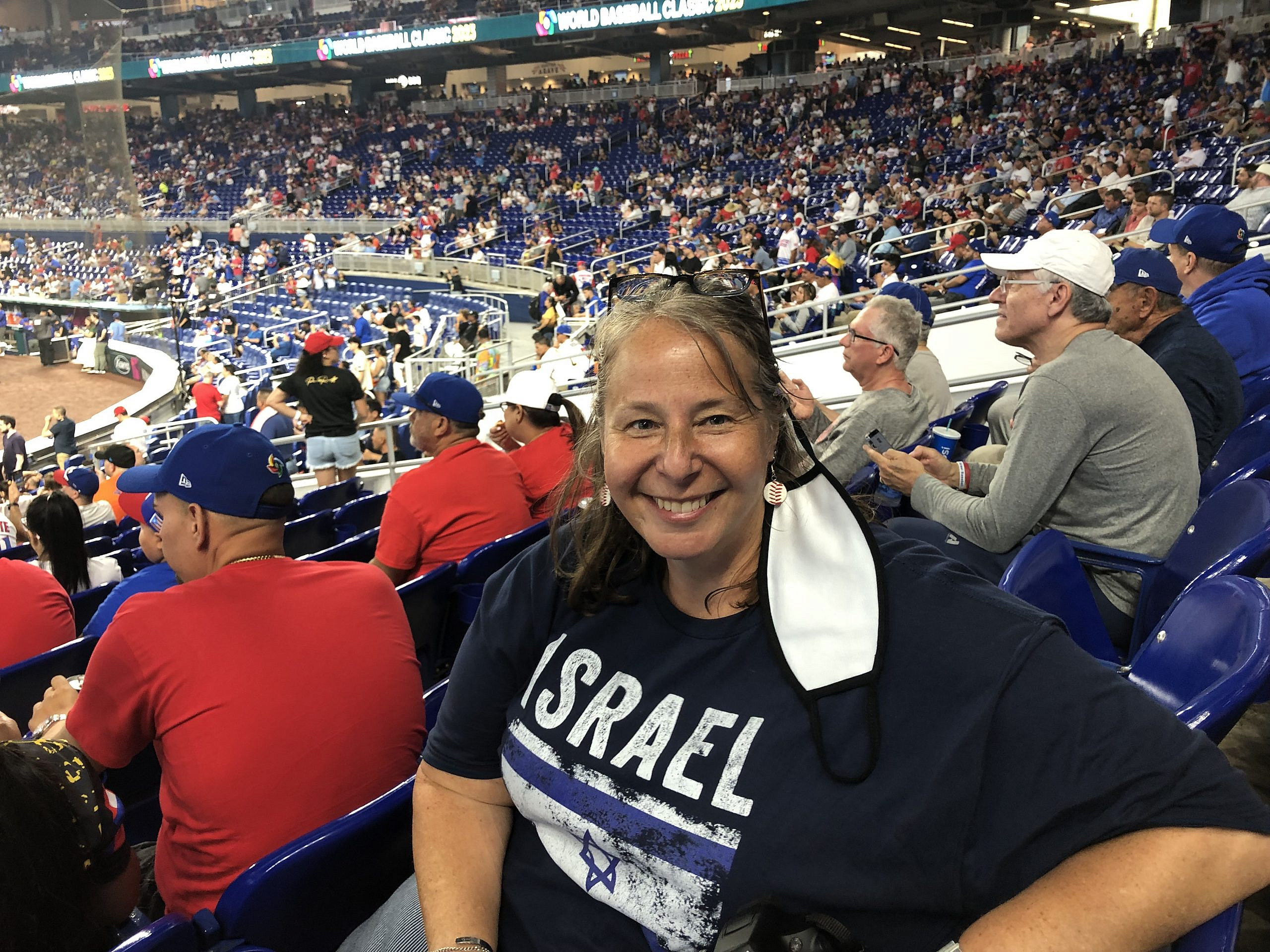Original Article Published on JewishPhilanthropy
In short
“In February, I led 23 participants with intellectual, developmental and sensory disabilities (blindness) on the Tikvah Ramah Birthright trip. Trip participants are affiliated with Tikvah programs at our Ramah camps in the U.S. and Canada where people with disabilities have been included in camp and vocational programs since 1970.”
The Jewish World recently wrapped up JDAIM, Jewish Disability Awareness, Acceptance and Inclusion Month, which has been marked each February since 2009 to raise awareness about the need for all Jews to be accepted and included in all aspects of Jewish communal life. Leading two Taglit Birthright Israel trips in two months has provided an interesting window in to just how far we have mostly come in the United States and in Israel in attitudes and policies towards people with disabilities.
First, it is important to note that Birthright has been including people with developmental, intellectual and sensory disabilities and such medical issues as inflammatory bowel disease for over a decade (see.) Our recent December Autism Spectrum Disorder trip (formerly known as the Birthright Asperger’s trip) even included two young Israeli men on the autism spectrum who are currently doing their National Service. Their participation helped fulfil the Birthright requirement of ‘mifgash,’ the integral part of every Birthright trip where Americans get to know Israelis through their full participation in a 10-day period. These young men fit in so well that they asked to participate a second time on a future Birthright trip.
This tech savvy group particularly enjoyed our visit to Mobileye, the Jerusalem-based company developing autonomous driving technologies. Our group interacted with young Israeli adults their age on the spectrum who use their exceptional visual perceptual abilities review, tag and label video clips of traffic signs, animals and other things on the road, which drivers might encounter. Israeli society continues to learn what we are learning in America — that some people with autism provide the “Autism Advantage” to employers and are better at some tasks and are often more reliable employees than non-disabled workers.
I do not think our December group encountered any negative attitudes toward people with disabilities from the moment they gathered in Newark Liberty Airport until they returned home.
In February, I led 23 participants with intellectual, developmental and sensory disabilities (blindness) on the Tikvah Ramah Birthright trip. Trip participants are affiliated with Tikvah programs at our Ramah camps in the U.S. and Canada where people with disabilities have been included in camp and vocational programs since 1970.
On this trip, we similarly encountered mostly positive, welcoming attitudes toward people with disabilities. For me, the trip started a few days before take-off when I joined a participant, her family and friends to celebrate her aliyah to the torah and a prayer for safe travel to Israel. Debbie M had asked her rabbi for the honor and it was seamless. In fact, Rabbi Woodward at BEKI congregation in New Haven, Ct., spoke of her involvement in the shul and her job at the local JCC; he did not once mention her disability or that February is JDAIM. BEKI naturally includes everyone everyday — at BEKI, there is no need for a special month devoted to disability inclusion.
As we gathered our participants near the Welcome Center at Newark Liberty Airport, we requested not so well known Sunflower Lanyards for all participants. This colorful lanyard is a subtle, silent way to let airport employees know that a passenger has a hidden (or visible) disability and may need extra support while traveling. It didn’t necessarily expedite things with El Al security or with our pre-boarding, but we were shown kindness, respect and mostly patience throughout. (Caveat: we are still not sure why one participant’s Mr. Potato Head was taken from his knapsack and thoroughly inspected!) On the plane to Israel, as I walked the aisles on several occasions to distribute medication or to assure allergy-sensitive kosher meals were delivered properly, passengers kindly offered to help seatmates.
Our time in Israel was perhaps the best indicator of how far we have come in terms of attitudes towards people with disabilities. The ANU Museum of the Jewish People in Tel Aviv has been working hard to make the museum more accessible and easier to navigate for people with a wide range of disabilities. Israel has very progressive laws and policies “mandating” that the elderly and people with disabilities “cut the line” in stores and elsewhere (ptur min hatur — exempt from the line) and companies are required to hire a percentage of workers with disabilities based on the size of the company. The 130 Korean tourists in our Jerusalem hotel were mostly fine with our entering the line in front of them in the crowded dining room.
Our group frequently attracted attention from hotel guests. Guests peeked in to our Shabbat tefillot (prayers) and to our post dinner oneg featuring singing and dancing. They wanted to know where this spirited singing was coming from! They often engaged us in conversation, told us they did not know Birthright offered such trips, and told us of a grandchild or child — in Israel, France or the United States — with disabilities.
We also encountered well-meaning comments, which were reminiscent of attitudes toward people with disabilities from an earlier time. “Yasher koach” (“Congratulations” or “good job”) shouted a carload of people as our group slowly crossed Hayarkon Street on the way to pray Shabbat morning under a gazebo at one of many accessible beach access points. “This is a mitzvah gedolah” (a big mitzvah) we heard from well-intentioned people as they left the plane ahead of us when we touched down at Newark. We do not think of our work with people with disabilities as a “mitzvah” — a good deed or religious obligation.
We smiled and thanked them for appreciating our hard work and dedication to making sure people with disabilities have an inclusive, immersive Israel experience. We didn’t tell them that we were still recovering from the shock of two passengers in different areas of the plane who asked the flight attendant if they could have their seats so they didn’t have to sit next to members of our group with Down Syndrome.
On second thought, maybe we still need JDAIM for the time being.
